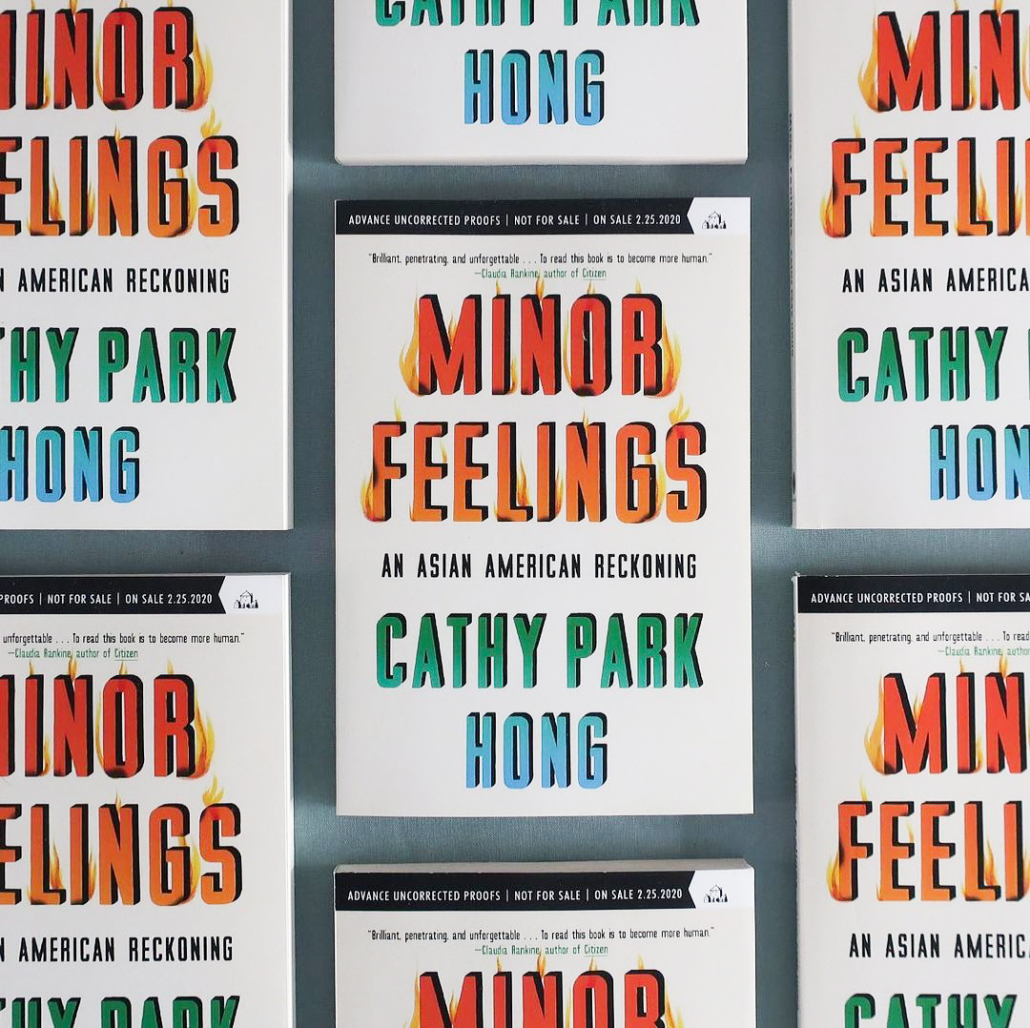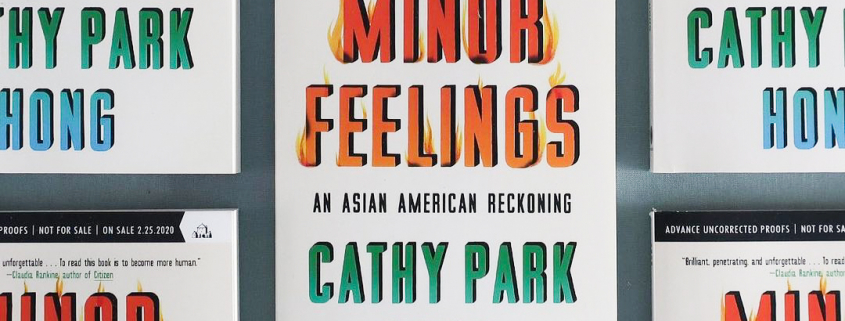Politics and Prose: ‘Minor Feelings’ offers the radicalization that Americans need

Cathy Park Hong’s newest book, “Minor Feelings: An Asian American Reckoning,” was released in Feb. 2020. It is very likely you have not heard of it.
Despite 2020 being popularly characterized as the United States’s year of “racial reckoning,” Hong’s book received little fanfare outside of Asian America. Hong was not invited to speak on The New York Times Book Review’s podcast. I have yet to hear or see a single person, again — except for a few Asian Americans — recommend, refer to, or even demonstrate that they are aware of the book’s existence.
This is one of the reasons “Minor Feelings” is so painfully essential today. During the United States’ supposed year of “racial reckoning,” Hong’s book, and the dearth of attention it has received from non-Asian America, offers a treatise on the country’s galling ignorance and shows how far the nation still has to go before it ever approaches anything resembling a true, “racial reckoning.”
The book is an amalgam of literary forms and genres — part cultural criticism, part memoir and part history. One could also accurately consider it a collection of essays. Chapter to chapter, Hong tackles a myriad of topics, from personal subjects such as her family and upbringing in Koreatown, her life in college and her experiences as an Asian American poet and professor, to historical and cultural subjects such as the 1992 Los Angeles riots, Hollywood’s centuries-long tradition of dehumanizing minority groups and the consequences of American imperialism and exploitation overseas.
Clearly, what Hong chooses to address in “Minor Feelings’’ is diverse and at times, seemingly disparate. However, Hong deftly manages and transitions between the scores of subjects she addresses in a way that is not only illuminating, but also sincerely beautiful to read.
Still, it is not only Hong’s command of prose that unifies “Minor Feelings,” it is how Hong captures, in a form that is haltingly unapologetic and redemptively accurate, what it often means to be Asian American.
“You don’t like how you look, how you sound,” Hong writes. “You think your Asian features are undefined, like God started pinching out your features and then abandoned you. You hate that there are so many Asians in the room. Who let in all the Asians? You rant in your head.”
To be Asian American, Hong explains, is to inhabit a “vague purgatorial status.” It is to be “distrusted by African Americans, ignored by whites, unless we’re being used by whites to keep the Black man down.” It is to be conditioned by society to believe that your features are inherently undesirable, to be taught your ancestors’ history is only relevant when they’re being shot or bombed by Americans and to scream into an empty void that you are in pain — a pain built, as Hong puts it, from “the sediments of everyday racial experience and the irritant of having one’s perception of reality constantly questioned or dismissed,” — only to be met by a deafening silence.
Hong is also unrelentingly clear-eyed in her evisceration of the lies, traps and societal cages that have long-stymied her voice, and Asian American voices like it, from being heard.
“The indignity of being Asian in this country has been underreported,” Hong writes. “We have been cowed by the lie that we have it good. We keep our heads down and work hard, believing that our diligence will reward us with our dignity, but our diligence will only make us disappear […] the lie that Asians have it good is so insidious that even now as I write, I’m shadowed by doubt that I didn’t have it bad compared to others. But racial trauma is not a competitive sport.”
However, if racial trauma is doomed to remain one by the societal forces that be, “Minor Feelings” makes clear that it is past time America recognizes that Asian Americans are at the very least, on the scoreboard. What with the 19th century anti-Chinese campaigns in which Chinese immigrants couldn’t even leave their homes without being “spat at, clubbed […] shot in the back” or lynched; violence and hate crimes that persist and increase to this day, and both a society and popular culture that has engendered crippling, unconscious self-contempt within innumerable Asian Americans.
It is in this context that “Minor Feelings” is a radicalizing experience. Hong’s book gives a language to the ostracization, self-hatred and unheard rage of many in the Asian American community, but it does so without falling victim to self-flagellation or fetishizing the suffering. Instead, Hong’s book is freeing in many respects, because to read and have articulated one’s lived experience is not necessarily to be weighed down by it, but, as in the case of “Minor Feelings,” it is to be liberated from it.
Stuart Carson is a senior writing about political literature. He is also an associate managing editor of the Daily Trojan. His column, “Politics and Prose,” runs every other Monday.

